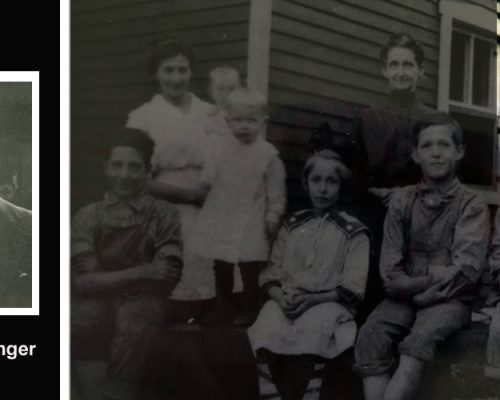Imagine this:
You are an artist and stumble across a blog that suggests you can radically transform your art knowledge and skills by participating in an Institute to develop the “Art of Painting Conversation.” The basic course will involve teaching and guiding you in the step-by-step methods/mindset of literally (vocally and in your mind’s eye) inviting Van Gogh to share a cup of coffee with you.
Sounds pretty creative, doesn’t it?
It tickles your fancy and tickles your ears so you keep reading. There’s going to be a ritual involved and if you are a Christian, you are going to have to suspend any “resistance“ to the notion of literally contacting dead Van Gogh at your morning coffee table. You are going to have to lay aside any pause or red flags this might raise in your mind or spirit and you are to trust this person’s methods.
Because, credentials. Lots of them.
You are to trust this person who clearly states/promises you will receive power and breakthroughs in your art when you cross the threshold and enter through the ritualistic portal (apparently, a coffee mug and your voice) to encounter Van Gogh himself over your morning “cup of Joe“–ready to guide you into deep and secret truths about “what it means” to have a Painting Conversation with your brushes.
Of course it’s a secret truth because only those capable of performing this ritual will obtain this knowledge. And of course the unconventional innovator of this method is so confident that you will be blown away by this process/experiential encounter that you will not think twice about leaving this so-called master painting guru a $50 “donation.” (Let’s not call it a fee because every artist knows that if one makes money off of the art of anything they have sold their soul to the devil!).
So bleary-eyed, with defenses down and your piping hot cup of coffee–and a few paint brushes and canvas on your sunroom table–you decide “Hey I’ll give it a try. What have I got to lose?”
You’ve been searching for that breakthrough in your painting techniques, haven’t you? You just want something deeper than “business as usual art techniques” that you’ve learned since childhood. How boring.
You were taught that from three primary colors a myriad of derivative colors, tones and values could be produced. But according to this guru you’ve been doing it all wrong! You need to be more edgy–break some rules and painting traditions. Right?
In fact, once you come face to face with Van Gogh himself over a literal cup of coffee (this is a very important “spiritual prop!”), he will explain what was in his head when he painted Starry Night using just yellow and nothing more. Van Gogh himself will sit before you with his cup of coffee and illuminate your understanding of how to sell art, and guide you through what was in his mind when he had the falling out with Gauguin and went to the brothel, cutting off part of his ear and handing it to the bartender.
This is information you can only obtain from Van Gogh himself. Over coffee. Using this new, ground-breaking method. Never in the history of art could humans decipher anything from cave painting to the splatterings of Jackson Pollack. No, this kind of background/context is simply not available in books, historical records, art history classes, in documentaries or to be read in the collection of Van Gogh’s letters known as Letters To Theo.
It’s really really important that you get into Van Gogh’s headspace so that you know the context (over a cup of coffee) rather than simply read about it in the collection of his personal letters to his brother Theo, along with a plethora of credible historic information, and draw your own conclusions. Nope. That would be “dumbing it all down” rather than “smarting it all up!”
Though it’s beginning to sound a bit gnostic to you, you want to feel included in the conversation.
By conjuring up this dead artist to sit at your morning breakfast table and share a cup of coffee with you, you will take it all to the next realm and level! Just have your $50 donation ready and carefully follow the instructions! Ready, set, go. Just 3 minutes of your time. Only a little longer than a YouTube “shorty” or Tik Tok message, and guaranteed to be better than a short tweet!
(Most analogies like this would have already broken down to some degree, having exhausted momentum of initial usefulness. But I do think I can get some more miles from this one!)
*Continuing on…*
Imagine this! When Van Gogh “manifests” himself in some manner over your cup of morning coffee, he reveals a whole new way of thinking about creating art. In fact, he is now your “conversation partner” sent forth from the great beyond to lead you into all truth! You will put full confidence in Vince’s communications with you because of course, who would conjure (speak to, call out, call upon) up a dead artist for painting tips and not expect him to somehow “speak back?”
This encounter with Van Gogh over coffee “does not need to be a mere metaphorical or theoretical step; it could actually be a verbal conversation that takes place out loud. This would involve sitting down with a cup of coffee, hot chocolate, tea (or whatever you want to drink) and visualizing the {artist} sitting with you. It takes a little getting used to; but it is a warm skill that anyone can learn. It is part science, art, imagination, and habit, all rolled into one. It’s allowing yourself to do something a little different, maybe even outside of your current comfort zone, all for the sake of growing; and it asks you to open your imagination. Like any skill, this one comes with a learning curve; but once learned, it can have a powerful impact on how we experience painting. If we have a mindset already against such things, we cannot possibly engage in it.”
– (parody of how to have a “conversation” with “Paul” or other biblical “author”)
That’s right. None other than Van Gogh Himself will sit with you over that cup of coffee in your own private “Art Institute,” communicating secret and hidden knowledge about the “Art” of “Painting Conversation.” And yes, this is not a passing metaphor like how to “make color sing” or the principle of starting on a painting and as it progresses “the painting itself will tell you where to go next.”
This is not simply creative, imaginary, innocuous, run-of-the-mill anthropomorphizing of a specific painting such as Starry Night being illuminated by the artist himself–a kind of portal notion where you might (metaphorically) enter into Van Gogh’s brain and creative thought-processes or the context by which he painted a piece. In fact, according to the painting guru you are not permitted to have extra-conversational affairs. You must put your allegiance/focus singularly to one of Van Gogh’s (or any other artist’s) paintings at a time!
The “haunted industry” has nothing on this peculiar, bizarre, Van Gogh-ish phantom you imagine over your coffee!
The painter himself who you first noticed coming on the clouds in your coffee (sorry, couldn’t resist that bad pun from Carly’s Simon’s line about “clouds in her coffee!” my parody-switch is stuck in “on position” as I write this…) is the ultimate corrector of all things un-painterly!
Shhh!!! No talking about the Potato Eaters in the same breath as Van Gogh’s Self-Portrait done at Arles, nor mashing together any techniques you thought you learned/observed in Irises or Starry Night and bringing them into a conversation about Wheatfield and Crows.
Shhh!!! We must converse with one painting at a time. In fact, we must take it one color at a time! Nothing more. If you think you notice a majority of cool colors in the overall piece of Starry Night, you are certainly wrong. You must exhaust your gnostical-deep-dive into just the color yellow, first.
If you do happen to “mis-converse” and mention some connection between colors or painting or style/technique and purpose/interpretation or especially, application…or your perceptions regarding painting…prepare to be energetically called out and corrected!
- Go to jail!
- Go directly to jail!
- Do not pass ‘GO’!
- Do not collect $200
- (Leave the collecting of dollars to the “Institute!”)

Go directly to “painting jail” where you won’t get out until you’ve spent so much energy on the color yellow and energetically fighting and resisting those who want you to consider the blues, purples and the linear qualities and composition of Starry Night and worse yet, relate the work to the “Potato Eaters” and “Wheatfield and Crows!”
Ummm…that would be like mashing potatoes together…like…ummm…taking something from the gospel of Matthew and relating it to something in both Genesis and Revelation!
Every artist who hasn’t been “dumbed down” or been mis-educated by human traditions and “schizophrenic, hopscotch-ish studies” such as mainstream “Monuments and Methods in the History of Art” (Oh, had to get that course title in from my time as an art major at the UD) should know the first rule of “power painting”: NO TOUCHING!!
You know, it’s like your unhinged crazy uncle who mixes stuffing with his cranberry sauce and just bites around between turkey, peas and other soft and hard substances on his plate at Thanksgiving! All the “responsible” and more credentialed siblings watch him in horror as he thoroughly enjoys the vast array of deep delicacies with their various flavors and textures freely spread before him…maybe even washing it down with a glass of Merlot, looking up and smiling and giving a loud “burp!” and a big smile!
It is like…ummm…the jail guards in “Arrested Development” whose one job seems to be watching for any signs of touching! “NO TOUCHING!!!”
What a spectacle it is that a food eater or an artist or a text studier would dare to mix-and-match things from canvases, recipes and documents that the “Ghost of Van Gogh” assures us have no connection. We need just take him at his word: NADA. NONE.
And we grotesque, uncredentialed “Potato Eaters” need to be led out of our ignorance into the “true light” so we can see that Van Gogh was actually a minimalist! Yes, you just think you see what you see in Starry Night but really, all it is by the time it’s fully deconstructed is a canvas with yellow.
In fact, the canvas is divided into three parts: yellow, yellow and more yellow!
Only the yellow in the middle is the most important part of the structure of Van Gogh’s art–like the oreo cookie, what’s sandwiched in the very middle is the most important part!
Regarding playing “hopscotch” with the bible (hopscotch is a terrible analogy and a strawman argument, creating a pejorative “caricature” of Christians who approach the bible differently…hopscotch actually has rules and is not some random activity): Dr. Gary D. Collier talks about “biblical hopscotch.”
“My goal is that they may be encouraged in heart and united in love, so that they may have the full riches of complete understanding, in order that they may know the mystery of God, namely, Christ, in whom are hidden all the treasures of wisdom and knowledge. I tell you this so that no one may deceive you by fine-sounding arguments…So then, just as you received Christ Jesus as Lord, continue to live your lives in him, rooted and built up in him, strengthened in the faith as you were taught, and overflowing with thankfulness…See to it that no one takes you captive through hollow and deceptive philosophy, which depends on human tradition and the elemental spiritual forces of this world rather than on Christ.”
– Colossians 2:2-4,6-8
The Elemental Forces of This World
And now I’m going to “dumb things down” here for those who feel it too burdensome to do some homework in the day and age we are in–to by necessity if they are going to invest time in becoming the disciple/following of some person–to at least educate themselves on the likes of Derrida, the theology of Hegel, or the practices of the occult, for example. How can we evaluate the plethora of false things coming at us in the “Church” these days if we resist doing some homework and referential study.
How would we know if we are engaging in deconstructionist talk, promoting Marxism or the occult if we have no solid understandings of what these things are. We live in an age that is wearisome, for sure. And it is easy to defer to so-called experts in some matter or to put blind trust in someone or some thing rather than question. And of course, questioning those who constantly want us to question can be exhausting, too, like some weird matrix.
But, these are the times we now must navigate, biblically and otherwise.

The lengthy analogy (and parody of the teachings of Gary D. Collier) in my above lead-in should rightly raise some legitimate questions for those concerned about the rise and nature of false teachers/false teachings within the Christian Church (both universal and in specific denominational/non-denominational clusters).
The false teacher doesn’t announce themself as such. They don’t show up in your sphere/church/YouTube feed and say, “Hi, I’m John Doe and I’m a false teacher sent by Satan to shipwreck your faith,” before they share their so-called, cutting-edge “Christian breakthrough recovery technique.” Sadly, there are a lot of wounded people out there or those with vulnerabilites in their thinking, perceived needs, emotions and life experiences that lead them to attach themselves to destructive things and destructive/deceptive spiritual mentors.
These people (those teachers false things) may not even be aware of their own unbiblical/extra-biblical or otherwise damaging teaching(s). From what I’ve seen in this realm, they are fully persuaded of their own ideas and many self-platform and take it upon themselves to “energetically call out” what they truly believe are the deep errors of others.
Anyone reading this should rightly ask of me, “And just who do you think you are, Eileen, to be calling out ‘these people?’ How do you know that YOU are not the one in error?!”
Well, that’s a good question! And believe me, I do my best to evaluate my own thoughts on some matter before taking such a strong stand. A number of my writings are simply my own, personal musings–currently formed opinions, experiences and expressions along my own faith journey. Writing is a helpful outlet for me. But, I have been through times in the past of straying into areas of thought and practice that God has later led me with his rod and staff back into safer, more biblical pastures. And surely, I still have more room for formation in so much.
And it is, in part, from that place of having gone astray in my thinking/practices at times (and encountering things that changed my understandings) that I currently speak. And I could still be wrong in full or in part about a number of things. But we all must think/speak/act with our best sensings/understandings as we keep seeking Jesus–the author and perfector of our faith–and to do His will. We seek to listen and be taught and guided by the Holy Spirit into the life and the works that God the Father has prepared for us to walk in from the foundation of time! (Ephesians 2:10)
Before I get to how/why I am doing this piece featuring the questionable teachings of a seemingly-and-mostly-obscure, online, self-platformed, self-identified “New Testament scholar” named Gary D. Collier, I want to return to the thought that a false teacher doesn’t identify themselves as that.
So in that vein of thought, just as the false teacher doesn’t openly identify themselves as such or possibly even see/comprehend where they are in error…neither do/(nor necessarily do) those who are utilizing biblically forbidden “occult” practices announce/know that is what they are doing.
Again, I do acknowledge that many people may unknowingly find some appeal in some thinking/notion/practice that actually is (or borders on) biblically forbidden things simply out of ignorance. I can look back at some things I felt “OK” about incorporating into my personal relational life in Jesus that though not overtly occultish, ran the risk of running me slightly-to-greatly off course.
Once I realized this, I turned away from some seemingly innocuous things, and I must remain on guard (as all Christians must do) in this realm. (example: I love nature and have an interest in birds and while I do believe God can send little personal signs, I must be careful not to over-read seeing certain birds/dropped feathers in certain situations).
The realm of the supernatural is by its nature, somewhat subjective and as the bible indicates, requires discernment. Obviously the bible is full of stories of God’s people receiving warnings in dreams, of prophetic messages being given, of particular “ritual-like” things commanded by God Himself or that can be seen in narratives of the works of Jesus, the apostles/disciples and other New and Old Testament figures.
In the book of Exodus, Moses performs “plagues” and other signs in the supernatural realm, and Pharoah’s magicians seem to be able to duplicate/counterfeit a number of these things. Eventually we get to the story of the first Passover, and God’s instructing His people to put blood over the “doorposts” (I note that a doorpost represents an entryway or portal, in a sense.)
The Judeo-Christian faith in many very real ways rests upon belief in supernatural realms. It would be beyond the scope of this piece to fully “apologize” (as in apologetics) this statement; suffice it to say that we follow a risen Lord and Savior Jesus Christ that we proclaim physically resurrected from the dead and that our blessed hope is that through faith in Him and entrance through His blood and through the waters of baptism, He will upon His return or our death welcome us into the eternal realm of life everlasting!
When I encounter people that seem hardened and resistant to the Holy Spirit’s workings in the here-and-now and the supernatural realm, but clearly believe in the resurrection and future/eternal realms, I scratch my head, somewhat. I know, it’s a complicated conversation. Just saying.
So for readers to follow my line of analysis here relating to the gimmick-like teachings and methods of Gary D. Collier–so that my take on it doesn’t come off as an over-read, mis-read or even comical take on the matter–I think we need to get a working definition of some terms that can be thrown around these days and are mentioned in both the Old and New Testament.
But next…I complete my thought of how/why I became inclined to do an expose here on Collier. It was through a friend’s writings raising questions concerning “Trinitarian” things that an online discussion arose in the comments section and I later re-read the piece and saw that a link was given recommending Dr. Collier’s blog for further understandings of how to study biblical “texts” and “documents.” The link has since been removed.
But I had followed the link and started reading, and then found myself perusing through a number of things on Gary D. Collier’s site. I had been slightly familiar with Collier before, through this friend’s writings and otherwise, and admittedly, had felt some concern previously that something seemed a bit askew in the influence. But until I exited the Trinitarian “conversation” and was trying to process it all and then decided to follow the link given, the misgivings I had held about my understanding of “Coffee with Paul” as well as other elements of Dr. Collier’s so-called “responsible” and “contextual” approach and “re-imagining” how to read scripture (he names it “power-reading”) was not solidified.
Working Definitions of Divination, Sorcery, Witchcraft, Necromancy, the “Occult,” “WICCA, New-Age, Neo-Paganism, Gnosticism,” Gnosis, Alchemy; and the Concepts of Portals, Rituals, Manifestations, Vocalization, Visualization
Whew. The above section title exhausts me to imagine full elaboration, and yet does not seem “exhaustive” of the needed background understandings/information that Christians need in order to identify, discern and articulate why a teaching or practice that may unknowingly (or in some cases, knowingly) be connected with spirit-realm territories that God forbids His people (Christians) from entering or even “dabbling” around with.
Prohibited Occult Practices
“When you enter the land the Lord your God is giving you, you must not learn the abhorrent practices of those nations. There must never be found among you anyone who sacrifices his son or daughter in the fire, anyone who practices divination, an omen reader, a soothsayer, a sorcerer, one who casts spells, one who conjures up spirits, a practitioner of the occult, or a necromancer. Whoever does these things is abhorrent to the Lord, and because of these detestable things the Lord your God is about to drive them out from before you. You must be blameless before the Lord your God. Those nations that you are about to dispossess listen to omen readers and diviners, but the Lord your God has not given you permission to do such things.
-Deuteronomy 18:9-14
Before I do some quick, superficial “working definitions” of the above terms/concepts, I want to mention a scripture passage found in the book of Acts from which we can learn some piece about how this demonic realm operates:
“Once when we were going to the place of prayer, we were met by a female slave who had a spirit by which she predicted the future. She earned a great deal of money for her owners by fortune-telling. She followed Paul and the rest of us, shouting, “These men are servants of the Most High God, who are telling you the way to be saved.” She kept this up for many days. Finally Paul became so annoyed that he turned around and said to the spirit, “In the name of Jesus Christ I command you to come out of her!” At that moment the spirit left her.”
Acts 16:16-18
Surely there’s a lot that has already been written about this encounter Paul and Silas had with a form of “divination.” I think we should simply take note that (1) the slave girl was in fact “speaking” something that was true: Paul and Silas were in fact “servants of the Most High God” and were telling others the way of salvation through Jesus Christ. We should also note that (2) the slave was making money from telling the “truth” and that (3) she was attaching herself (and the spirit) to legitimate Christ-followers (Paul and Silas), energetically following them around for days and shouting. (This must have been exhausting for her!)
The final point we note is that (4) Paul “finally became so annoyed” that he cast the spirit out from the girl. Verse 19 goes on to say what happened to Paul and Silas as a result of this “disruption” of demonic activity: they were taken before the authorities, beaten and jailed. In other words, the exposure of this dark, demonic spirit led to a kind of “lashing out or rage” against Paul and Silas that Satan manifested through the people involved.
There’s a lot to “unpack” (as they say) in just this one biblical account of one element of what we lump together in the twenty-first century as “the occult.”
And now, some terms defined from a “21st-Century” Dictionary:
Divination
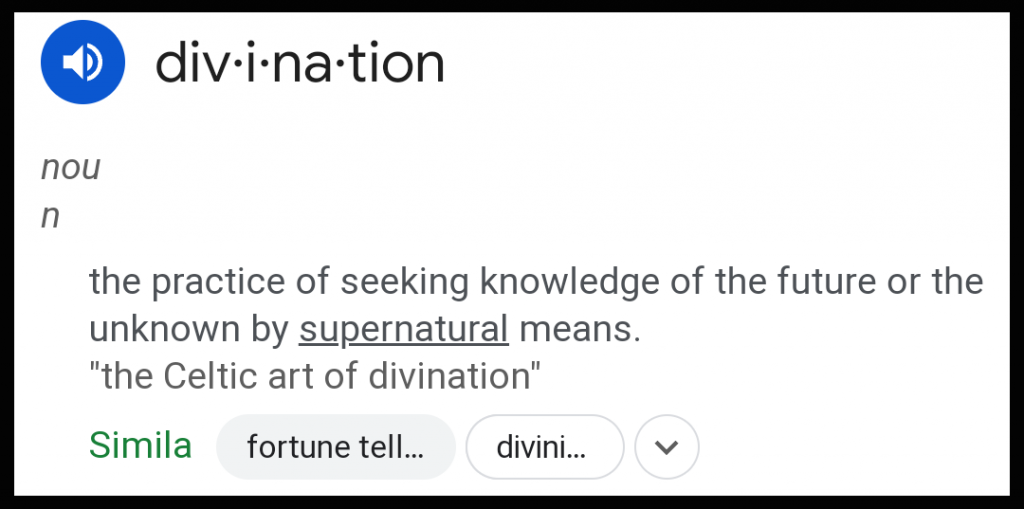
Sorcery
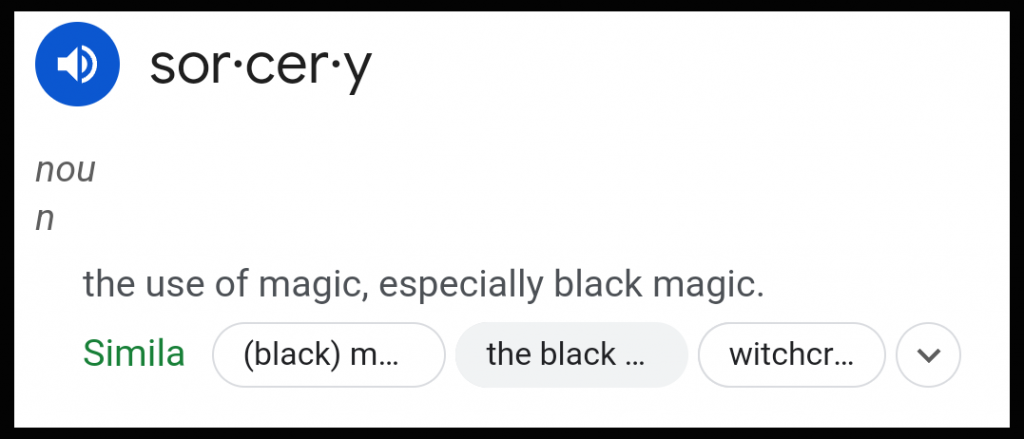
Witchcraft
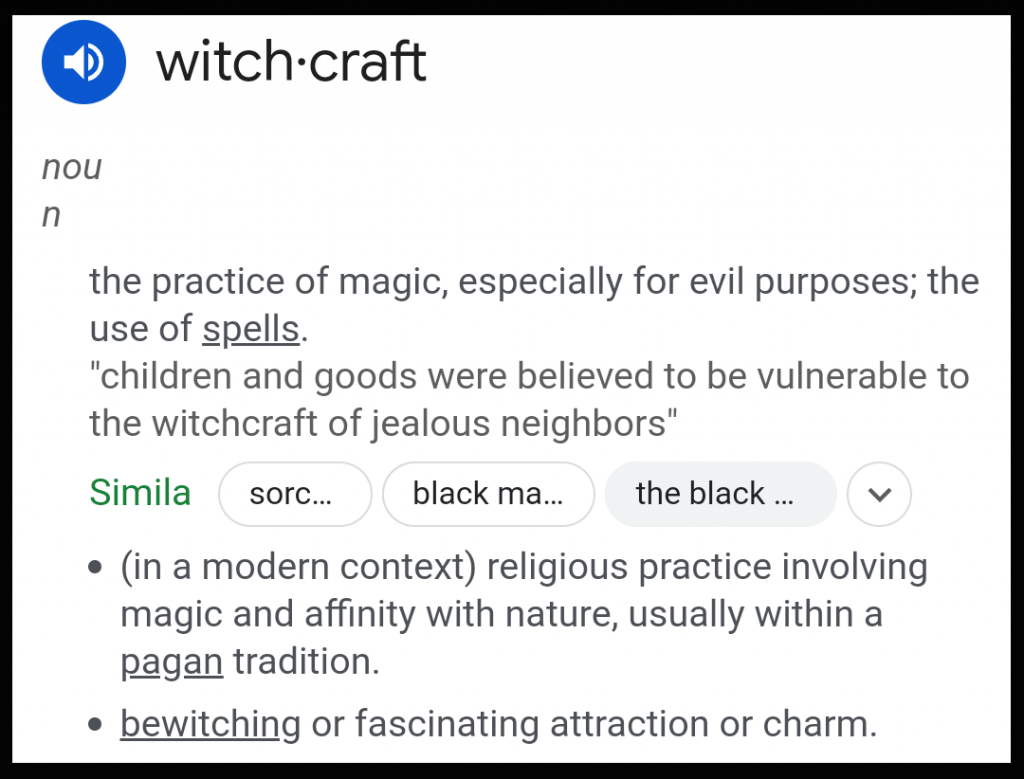
Necromancy
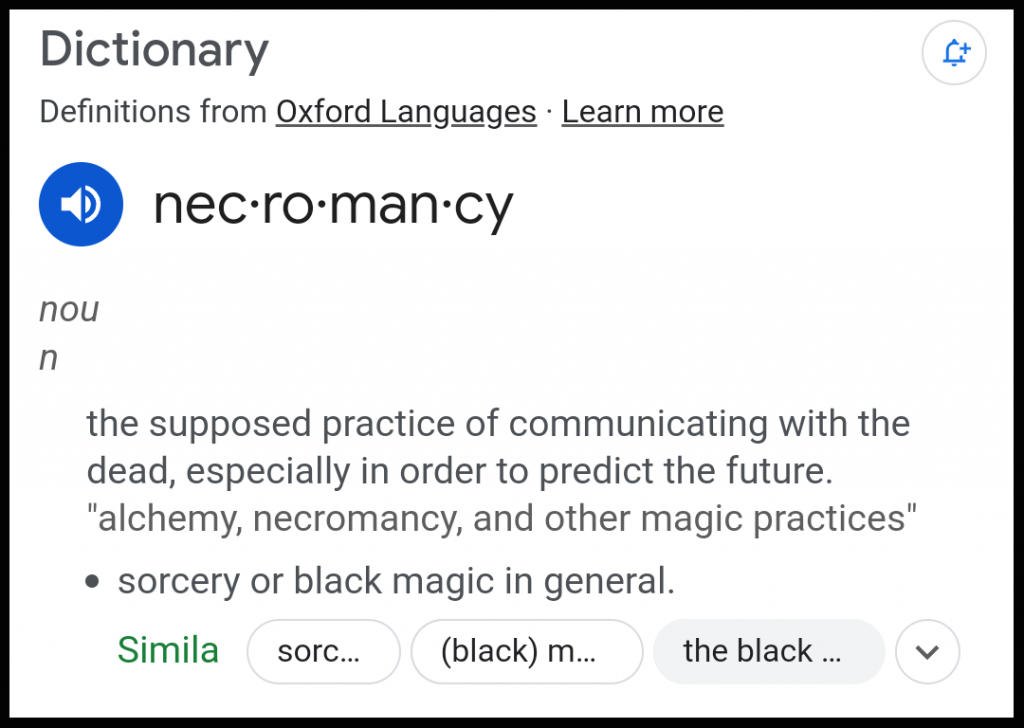
The “Occult”
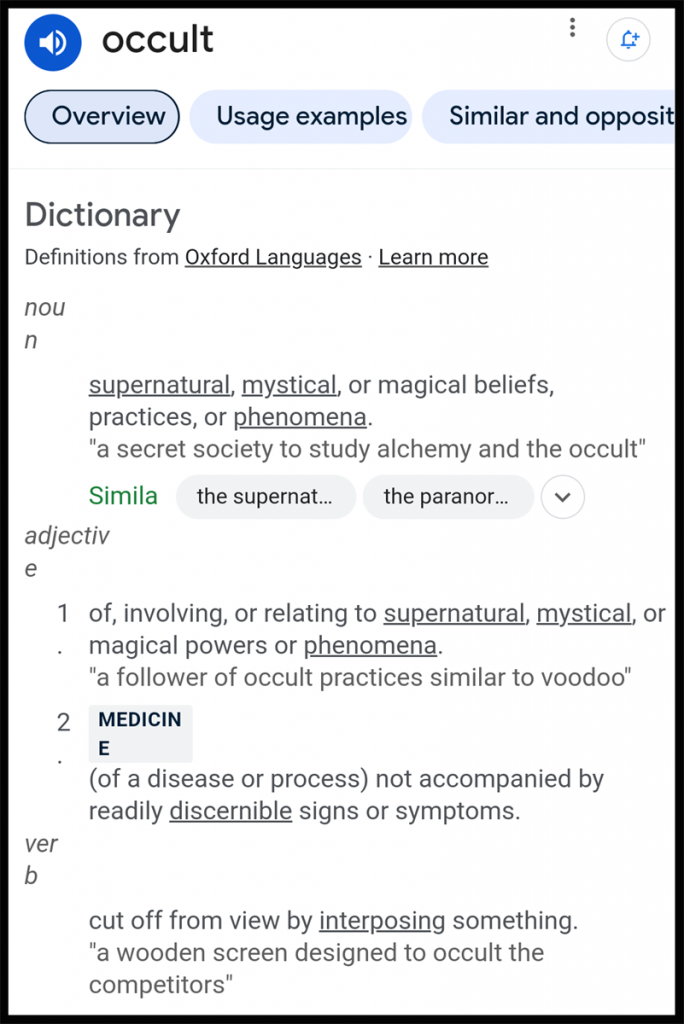
(Above) I find it interesting that the last two definitions of occult (medicine and verb form) have to do with some “hidden” or difficult-to-discern process and involves “cutting off from view” something that would otherwise be needful or of “interpretive” value in knowledge and discernment. (my paraphrases)
Out of curiosity, I searched the exact definition of “interposing.”
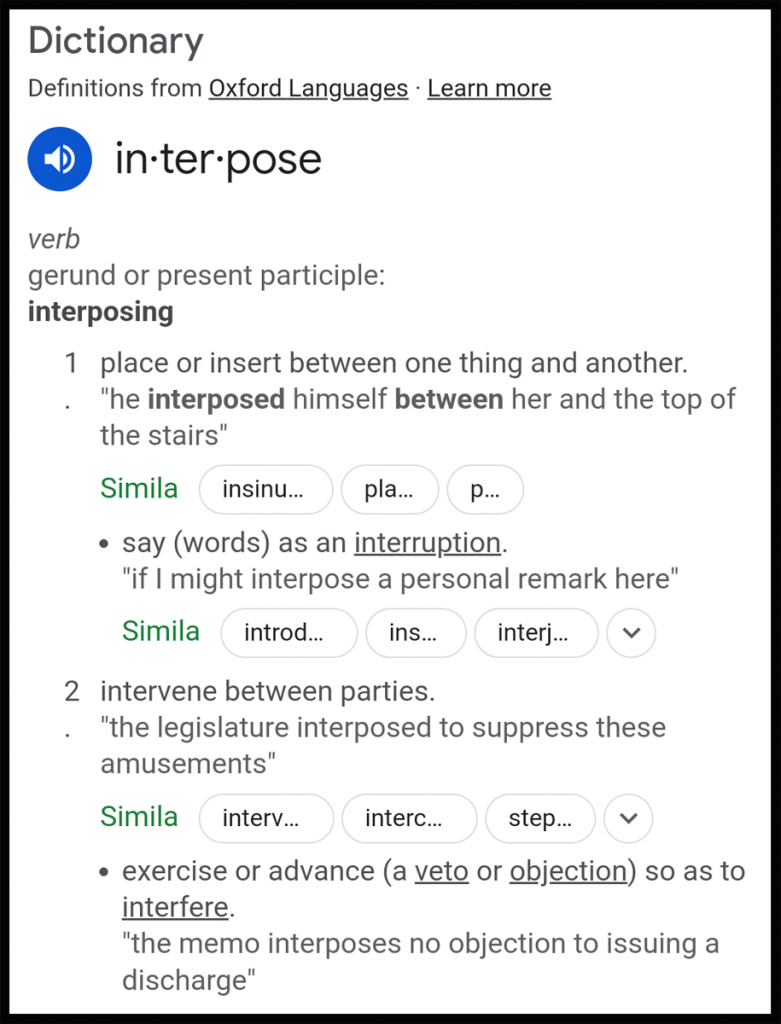
“WICCA”
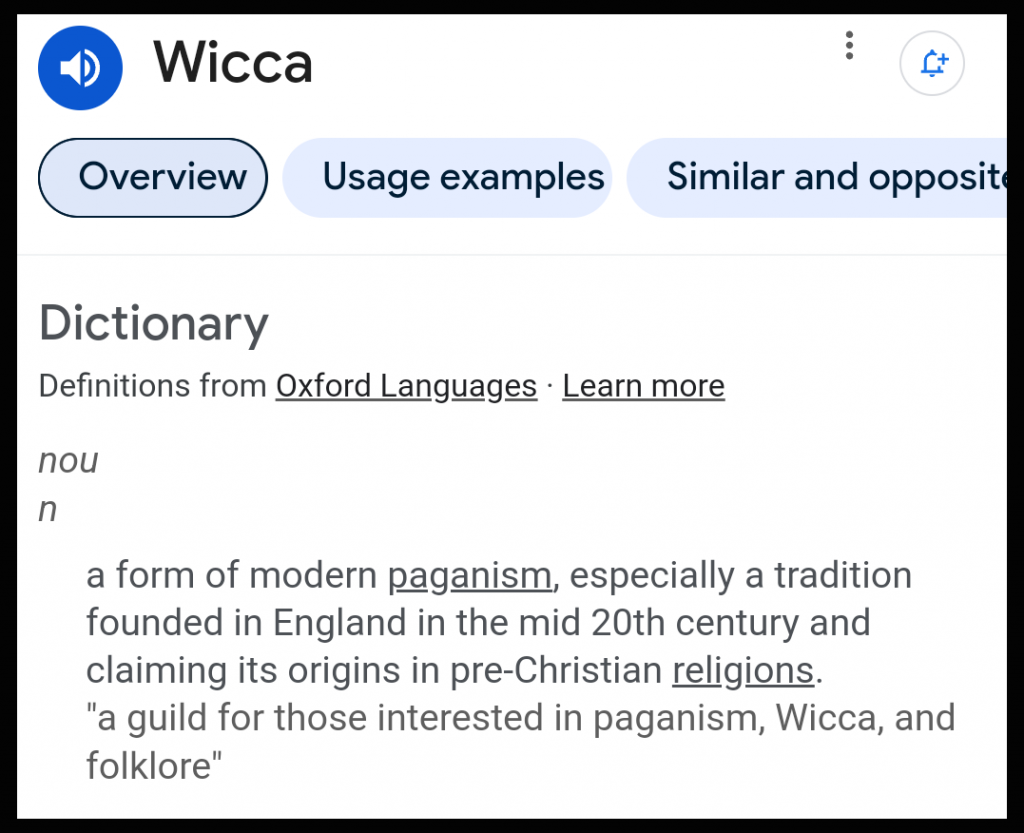
“New-Age”
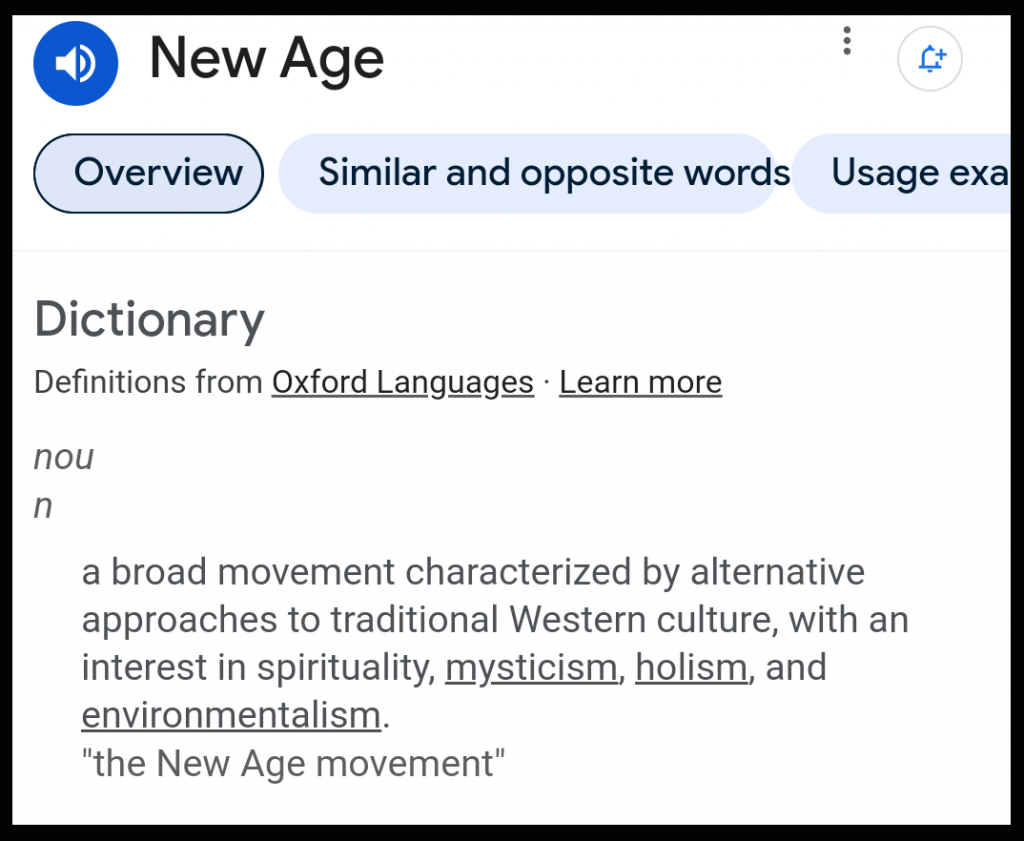
“Neo-Paganism”
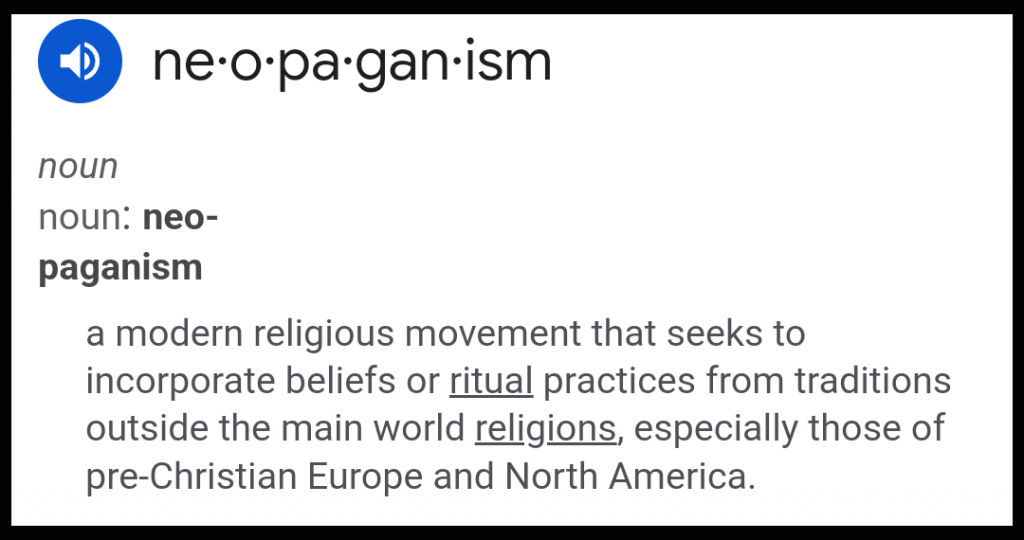
Gnosticism
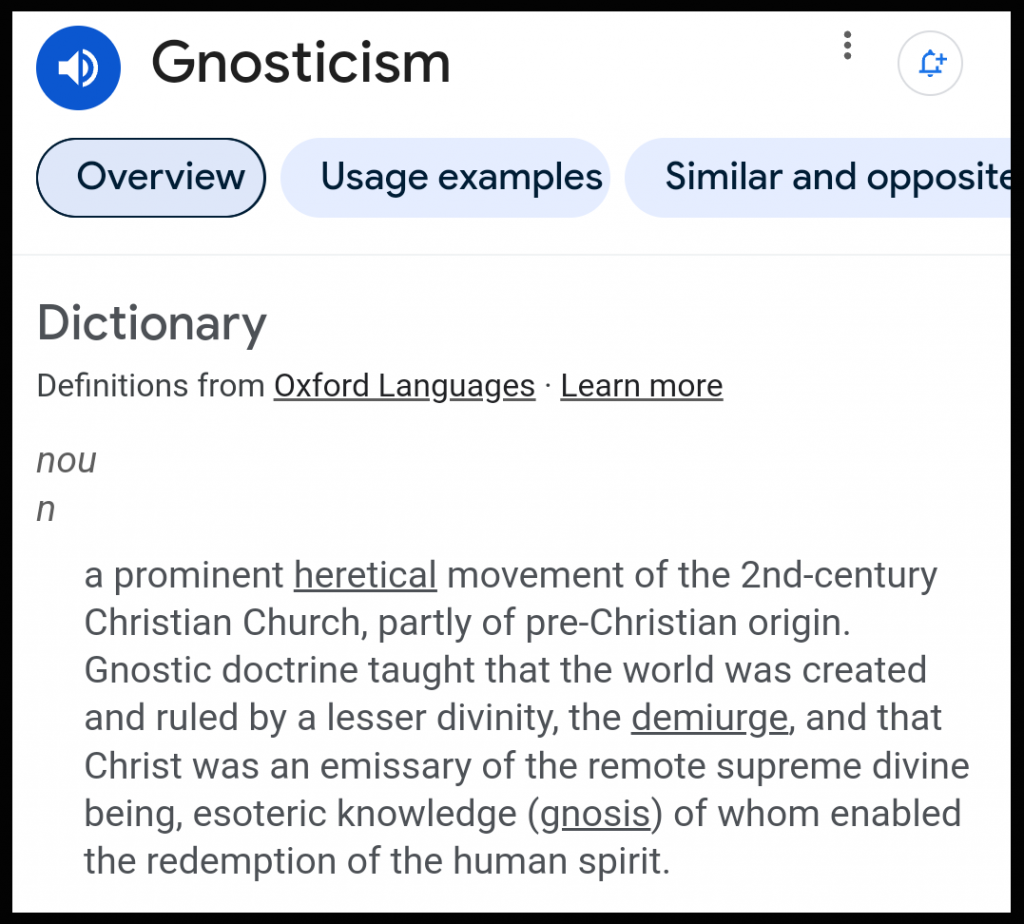
Alchemy

As for a working definition of some concepts relating to the “occult” (portals, rituals and manifestations) I will put two images and the link to the discussion/source on Quora. As the full linked response indicates, it is a subjective realm and beliefs from various religions/cultures vary regarding many of these things. I would highly recommend drawing conclusions from direct biblical passages on the matters as well as analyzing various biblical stories depicting glimpses and elaborations on such matters. But I do believe we have something to learn from those who “profess” to be occultists. (Not for the purpose to do those things, obviously, but to be aware of what some people do and their reasoning/methods/beliefs…)
The link “What is a spiritual portal? Is it dangerous? Are spirits more active at night while we sleep? What do they do while we sleep?” mentions dreams, for example. Dreams are repeatedly depicted in scripture as a normal part of the narratives of encounters between God Himself and various people. And while I do believe/agree that demonic entities (as well as the Holy Spirit) can be active in the dream realm, the “discerning” of the differences between a “dream from God” or a “satanic dream” or simply a “natural dream from one’s psyche” may require many tests and considerations, and we don’t always have absolute clarity. I think it is a good thing to get a sense of what an actual spiritual dream from God might be telling us/warning us or elaborating to us, on a personal level, and simultaneously not holding too tightly to any absolute, unquestioned interpretation of “said dream.”
It’s a balancing act, for sure.
I’m on a rabbit hole here somewhat–a foray into dreams because I have personally and regularly experienced things in this realm over the years that leave me (carefully) seeking Jesus and the Holy Spirit for understanding and discernment. To further complicate just this one area of potential supernatural activity, I do think dreams can be a mixture of any of the above-named things: the human, natural psyche; the spiritual dream given by God through His Holy Spirit; some form of satanic activity assaulting our minds and spirits as we sleep.
Before a reader is quick to dismiss, consider the story of Joseph and take a close look at his dreams and how these were presented, and how God used them. Fascinating and faith-building “texts!”
Portals, Rituals and Manifestations (as related to the “occult”)
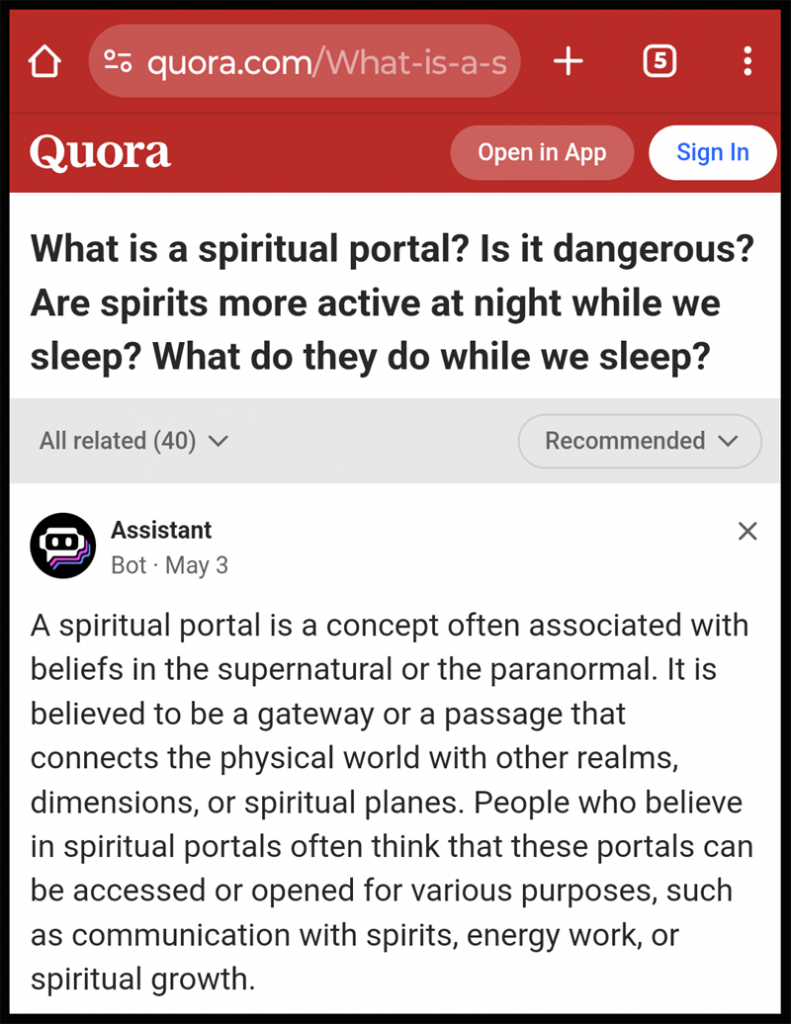
Full Quora response: “What is a spiritual portal? Is it dangerous? Are spirits more active at night while we sleep? What do they do while we sleep?”
Regarding “Vocalization” in conjunction with “Visualization” in a “Ritual”:
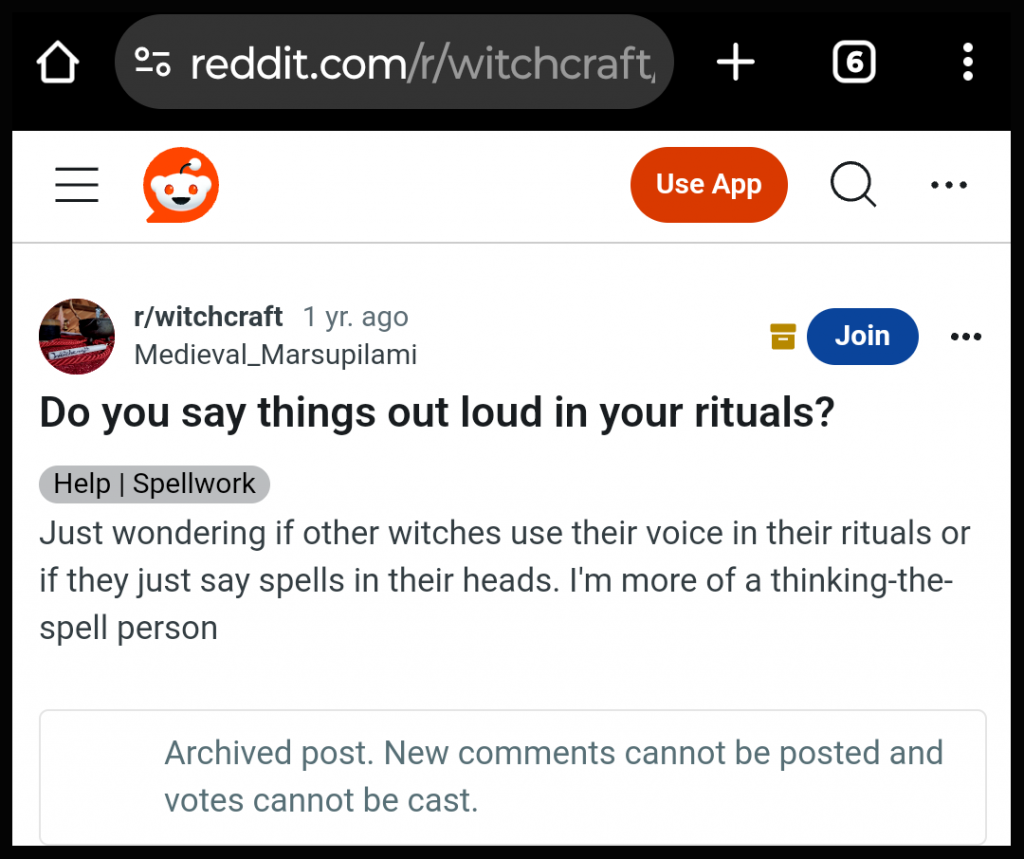

Moving on…
Why Do Many of These “False Teachers” Seem To Be So Obsessed With COFFEE??!!
It feels almost wrong that in one, single blog expression here I would open with sarcasm, humor and a form of ridiculing parody (my Van Gogh analogy) and then in the next section tackle a very serious topic (the occult) with many mind-sobering realities and then…hop-and-skip-skotch into a tongue-in-cheek statement that any red-blooded coffee drinker might sip-and-grin as they ponder…!
No. Seriously. Why coffee??!! And why, “conversations” over “coffee?”
I know I know I know…coffee is a kind of socially-acceptable portal into a number of things! For many people, it is the gateway drug to surviving another day! It is the “WOKE” before there was the idea of being woke, ha ha! While we may not think straight before that first sip, it is the morning beverage of choice to jolt us into some form of “reality” and high-functioning “power!”
Coffee with a friend mid-day is the perfect excuse to connect and can be a gateway into many meaningful “conversations.” Just as the very idea of food and eating “at table” with someone has many layers and serves many purposes, and it should be noted that typically we don’t eat with our “enemies.” Hitler, Churchill and FDR could not be found conversing over the coffee port–…portal–I mean, the gateway that sharing a cup of hot coffee (cream and sugar or BLACK??) at a little shop in Warsaw (or hey, let’s invite Stalin too and meet up in Siberia!) might have provided and led to some “quick peace agreement.”
Right?
Coffee seems to be the great connector, and I don’t know that I’ve ever shared a cup of coffee (pleasantly) with someone I didn’t want to love, trust or otherwise positively interact with.
I seem to be wading into the weeds again…and I’ve referenced David Fitch1 in several of my blog pieces here concerning his Marxist leanings and other false teachings and I now additionally note that he highly promotes having “coffee” or a “beverage” of choice with others in a non-traditional-church settings as part of what he names as “missiology” for “post-Christendom.” There’s plenty of this gobbledygook to read or watch promoted by “FITCH” (as his devotees/protégés like to call him) to be found online.
My point is:
COFFEE!
Awhile back I saw one of Fitch’s “disciples” (that’s what these people do, they “make disciples” of useful others through their indoctrinations) sharing a link. Again, it involves COFFEE.
Here is the video for analysis, for those interested, followed by the comment I made and a comment another person from the video itself made in reply to me:
Me: “I listened to this introduction twice. While it is a clever play on words, I don’t believe that the beginning of Christian unity is found in sharing a cup of coffee or in coffee “grounds.” Later in the talk one of the young people states that the “gifts” of the Spirit are “Love joy peace patience kindness goodness faithfulness gentleness and self-control.” Scripture names these as the “fruit” of the Spirit. The gifts of the Spirit are listed elsewhere and involve things ranging from prophetic discernment to the gift of “helps.” While this may seem like a mincing of words, seemingly small changes of scripture quotation, interpretation or application can have a big impact. Given the current state of issues of disagreement in the Church based on scripture, how would this group handle another Christian who called for a rejecting of any affirmation of LGBTQ-ist embracing? I’ve had much experience with fellowshipping and being in unity with Christians from all backgrounds for many years. The concept is certainly not new. In the video one of the speakers states that we are disunified by “minor things.” While there are certainly cases where there is disunity over petty issues I think that often these are heartfelt and serious differences.”
Responder: “As to my slip in calling the “fruits” “gifts”, that was not intentional. I think in 1 Corinthians, Paul is confronting an obsession with giftedness as a way to determine relative importance in the church. He turns their attention from these external displays of the Spirit’s power toward the most important gift which is love. This gift (also the first “fruit” of the Spirit) is more about a way of being in the world that is in contrast with the was of the world/flesh. We at Common Grounds are more interested in bearing the fruit of the Spirit than exercising particular gifts of the Spirit, though I think the terms are somewhat interchangeable. Thoughts?”
Me: “For sure, “love” is the over-arching theme of both Old and New Testament. In my “FB” comment here, I’m sorry if my statement about “gifts” vs. “fruits” may have sounded as though I want to emphasize “external displays of the Spirit’s power.” Let me come at it another way. Paul did address particular issues in the church at Corinth, the way “some gifts” were being used was just one. Preceding the well-known texts describing God’s love in I Corinthians 13, we read “It is actually reported that there is sexual immorality among you, and of a kind that even pagans do not tolerate…” And in II Corinthians 6 Paul asks “what in common” does the “believer” have with darkness? (described in that particular context, but applicable through the ages). This is not the only place scripture and its various authors tell the people of God to be holy, to advocate from that which is holy and right and good, and to “come out” or be “set apart” from any form of sin, as God’s holy people (His “Church”). Since you mention I Corinthians 13, we must note that the “love” God calls us to is described as such: “…It does not dishonor others, it is not self-seeking, it is not easily angered, it keeps no record of wrongs. Love does not delight in evil but rejoices with the truth. It always protects, always trusts, always hopes, always perseveres.” It is very important to recognize the LOVE does not delight in evil, but rejoices with the TRUTH. I am going to break this comment here before responding to other parts of your comments, for ease.”
Me: ” In the video, you do state that you are referring to Galatians…it is confusing to me how a 15-minute, high-quality presentation that I would imagine went past a number of people could miss your “slip” but I hear you on this. I do think there is reason to distinguish between “fruits” and “gifts.” By gifts, I would include those of Ephesians 4: Apostles, Prophets, Evangelists, Pastors, Teachers…as well as the prophetic gifts (discernment, words of knowledge, etc) on through gifts elsewhere that deacons exhibit, etc. I would include all types of gifts of service and worship/music, etc. But where I think this is of particular importance when we are trying to “create space” and “have conversations” with the goal of “unity” lies in the accountability of Christians to scripture-ordained authority (Pastors, Teachers, Apostles….elders, etc) that is set in place to establish, maintain and protect the “root” or the “tree” of the gospel/Church (however you might name).
In other words, fruit comes LAST and has to do the the tree/root itself. We must examine ourselves to see if we are in the faith. These days, people are calling evil “good” and good “evil.” These lies go back to the serpent’s deception…Eve thought that the “fruit looked good” and so was deceived. The term “believe” has taken on all kinds of meanings these days. In this video, another speaker quotes from John 17 about unity so that they will “believe” but stops short at clarifying the entirety/context of the prayer of Jesus and what Christians are to believe. In the book of James, we are told that even the demons “believe.” So, there is conversational space needed for this. When the pre-assumed goal is “unity” there is a danger of dismissing a number of very important issues for the sake of “joining together” (apparently for some other purpose).
In the video, a speaker mentions “allegiance to denominations.” For sure, that exists. However I believe this is a type of strawman statement–I would assert that many matters these days are not small differences but represent allegiance to scripture and to King Jesus, and submission to Church authority/accountability/discipline rather than “allegiance” to the world.”
Me: “In the video, another speaker (the woman) talks about “what discipleship ‘looks like’ in their ‘context.'”
I find this sentence needs a lot of unpacking. I’m not sure what she is trying to say. While for certain individuals have their own set of life circumstances and are set within their own particular “oikos” of connections, influence, I wouldn’t imagine that there is any biblical “discipleship” in any particular “context” as I’ve mentioned that would require significant recognition, re-imagination or conversing about…”
It was shortly after this that the person who posted the link shut down the conversation by turning off “comments.” Shutting down a conversation that you start is a sure sign that you were looking for neither “conversation” or honest dialogue. If someone cannot respectfully question–even if disagreement is still the final outcome–then why express at all? Echo chambers sometimes need to be challenged. And, I don’t view the exchange of ideas/positions as inherently a negative experience.
So now…let’s get to the main course here:
“Coffee With Paul”
(But first, a commercial break, of sorts!)
Who is Dr. Gary D. Collier?
I’m trying to think through the best way to introduce Gary D. Collier. While I am focusing on his specifics, my broader intention is to raise awareness of patterns and how we might “deconstruct” various atypical deconstructionist-type teachings/methods (aka “false teachings” or offbase ideas) that we encounter from what we might learn from this one example.
The best place to start with how/who Collier identifies himself to be would be from his own very lengthy “about himself” or profile. While “academics” do in fact have lengthy resumes, I feel it’s just very long and in my opinion, mostly a subjective assembly of every possible reason we should “believe” him to be a “kosher” and highly credentialed (read: trustworthy) biblical “expert” and not just another person who has invented a new gimmick.
As a reader, I find the selected image of himself that accompanies this lengthy explanation of who he is disparate and jarring. Later, I am going to point out that Dr. Collier seems to “pre-field” objections by stating he is “not” presenting a “gimmick.” I find that odd and bizarre. I also note that in the video on the “profile link” Collier makes a lapsus linguae in the beginning of his speech saying along the lines of (paraphrased) “We want to be a ‘disciple of scripture’ and then immediately correcting that we want to be a ‘disciple of Jesus.'”
I just think that we must be careful to maintain balance even in the good and needful pursuit of scripture study. Scripture is not an end in itself, but discipleship/relationship and love/faith/allegiance to Jesus (and endlessly more!) is the goal. Scripture study must lead us to Jesus, and the fruit of healthy bible approach should be spiritual health!
A tangent, perhaps: I am a visual artist and I also write. While my style of communication is not everyone’s cup of tea (I mean, “COFFEE!” ha ha), I do have a small group of readers that seem to be able to follow me, for the most part. And, I follow people online such as James Lindsey who, quite honestly, talk and write and inter-link far more than me! I follow and I like it. We are “kindred spirits” perhaps (in the best sense of that term).
Back to Dr. Collier’s communications in one of his self-platformed (as far as I can tell) mediums. I read that he is “CEO, Chairman of the Board, and Director of IABC (http://BiblicalConversation.COM), a 501c3 not-for-profit educational organization located in Cloverdale, IN, with a world-wide outreach.” (from his LinkedIn profile). He has published numerous books listed on Amazon (a pattern that I’ve noticed in others such as David Fitch) and with that, comes a lot of self-promotion and pressing for book sales (or in Collier’s case, he states, he runs a “non-profit” so I suppose that’s why his courses are by donation?)
Collier also has a number of YouTube videos in a series called the “Three-Minute Bible” on his channel called “Biblical Conversation.” Considering the length of his resume and online endeavors, Dr. Collier does not appear to have a high number of followers or be connected in to other ministers/churches/parachurches, etc. I also point this out because of the high tech quality/techniques used in his videos–a lot of audio-visual elements and special effects that illustrate and “move” which I know from personal artistic experience is not easy to put together. Considering the plethora of podcasts by many people that don’t involve so much fluff in content presentation, Collier seems to put a lot of energy into his videos and I imagine, a lot of time and money, but has only a small fraction of the followings that less techy presentations seem to gain.
Sadly, some lone wolf with a basic cell phone can spout off all kinds of destructive stuff on TikTok or YouTube “shorts” and sometimes gain thousands of hits and followers. So when I encounter various online influencers in the Christian realm, I always take a look at their followers in terms of numbers and linkage, etc. When the messaging is good and sound, the online reach can be great. But if it is unsound, then that is obviously problematic.
David Fitch is clearly (and in my opinion, negatively) influential. He puts together very appealing/effective “shorts” on YouTube and lengthier “conversations” on topics. He’s very active on podcasts and is now (as I understand it and had seen online and mentioned in his podcasts) associated with The Jesus Collective (which I would like to research more as I’ve learned of a small church somewhat near me that is aligning with that “movement” or whatever it might be identified as). David Fitch is a seminary professor and also touts himself and his credentials and is often introduced on podcasts by folks like Preston Sprinkle and others with an almost “god-like” reverence. In this recent interview, Sprinkle says “FITCH” is such a “Rock Star” name to go by as they shoot the breeze in the intro-talk.
David Fitch has many followers on other social media platforms…and his followers especially have many inter-linking “followers.” One of Fitch’s former students has over 3.6K followers on social media, and a number of these people tag themselves in inter-linking posts which result in the “sum total” influence and doctrine-thought-spread being multiplied and greater than “any one person.”
I just find it interesting, noteworthy and disturbing.
But, back to Gary D. Collier. My point is that unlike Fitch, Sprinkle and many others, for all his efforts, he remains (to my impression) mostly on the obscure side. He doesn’t appear to be associated with any particular church (although I read that he has past associations with the Church of Christ).
Why does he matter then? And why would I spend time exposing things of concern relating to him?
That’s a good question. Part of it just interests me…I find the exercise of recognizing patterns and trying to research/articulate a “part” that can teach something of value and be connected into some bigger “whole” to be something worth my time.
I also increasing believe we are in a time where it is especially important to expose things that are of a deconstructionist nature and offbase–or blatantly heretical.
And, while Collier’s influence over others is questionable in terms of “scope and nature,” if even one sibling in Christ is having their allegiance to Jesus and to spiritual health undermined or otherwise distorted/tethered, perhaps someone out there will Google “Gary D. Collier” and “heresy” and come up with my piece somewhere down the line…
As with many people that I come into awareness of online and find questionable, I’ve learned to simply put their name and the word “heresy” into Google. The more obviously heretical (the “Marxist-touting” or “Gnostic-spouting” Christian-identified) can easily and quickly produce interesting search results. Just put the name “Richard Rohr and heresy” together, for example.
Others, however, may not show any (or little) Google results with this search combination.
But of most interest, when I put the terms into YouTube I came up with the following video next below. I must wonder what prompted this strong response filmed at a CoC conference in Texas in 2011 over a book Gary D. Collier published in 1993. There’s surely some background story there, given a number of things one can surmise.
The most interesting thing is that nearly 30 years ago (at a time where there were tremendously false teachings in a charismatic church I was part of that were connected with the so-called “Toronto Blessing”) that in another setting that Gary D. Collier was writing “The Forgotten Treasure” which is the subject of the video by Brad Green, at Spring Church of Christ, Texas.
It makes one wonder about the “geist” or “spirit of the age” that is promoted in the writings of Hegel.
Fascinating.
But of course, if one hasn’t “done their homework” and attempted to understand influences by Hegel, Derrida and others, what I am writing may be categorically dismissed. One might even find it comical. “Nothing to see here. NADA. NO CONNECTION” to anything occultish (like the so-called “Toronto Blessing”) or “Marxist” ideas or anything otherwise “sinister.”
I know this itself is lengthy and unwieldy to organize in both scope and sequence. Any reader who finds this “too much” or irrelevant is certainly welcome to just stop taking in the information I have assembled here.
So where was I? I am about to move on to my main assessment (biblically and otherwise) of just why I find Collier’s “Coffee With Paul” notion/method quite unusual and otherwise offbase (he has clearly put much thought into it all and it apparently never crossed his mind that it might be viewed as potentially a form of “occult-ish” ritual otherwise named as a new and unique method of “power-reading” the bible), but first, I will insert some Google “trailers” for doing one’s homework on Derrida, along with some good audio talks on the subject.
On Derrida and Deconstructionist Methods and Terms
Of all the WOKE-Marxist-Deconstructionist terms that I mourn the linguistic hijacking of, the term “conversation” ranks number one. Before I realized what Rob Bell was brainwashing me with (it had its appeal…he’s a great communicator and story-teller and uses language quite creatively!) I “loved loved loved” the “idea” of having “conversations.”
- Piggy-backing on that term was to “create space” for something.
- Having “better conversations…”
- Having an author as one’s “conversation partner…”
- “Making space” for a “conversation!” (Double whammy!)
It all sounded so good, so right, so creative…until…it didn’t. Until I learned what was really being said.
It’s almost ruined the words forever in my mind…yet, I do more carefully use them now. Occasionally, I now use them with intention, in efforts to connect with someone who has been linguistically brainwashed in deconstructionist thought…in a sense…the words themselves are like some “portal.”
And then, of course, occasionally I use such phrases because a part of me still likes them and finds them useful.
Deconstruction’s Three Phases by Scot McKnight.
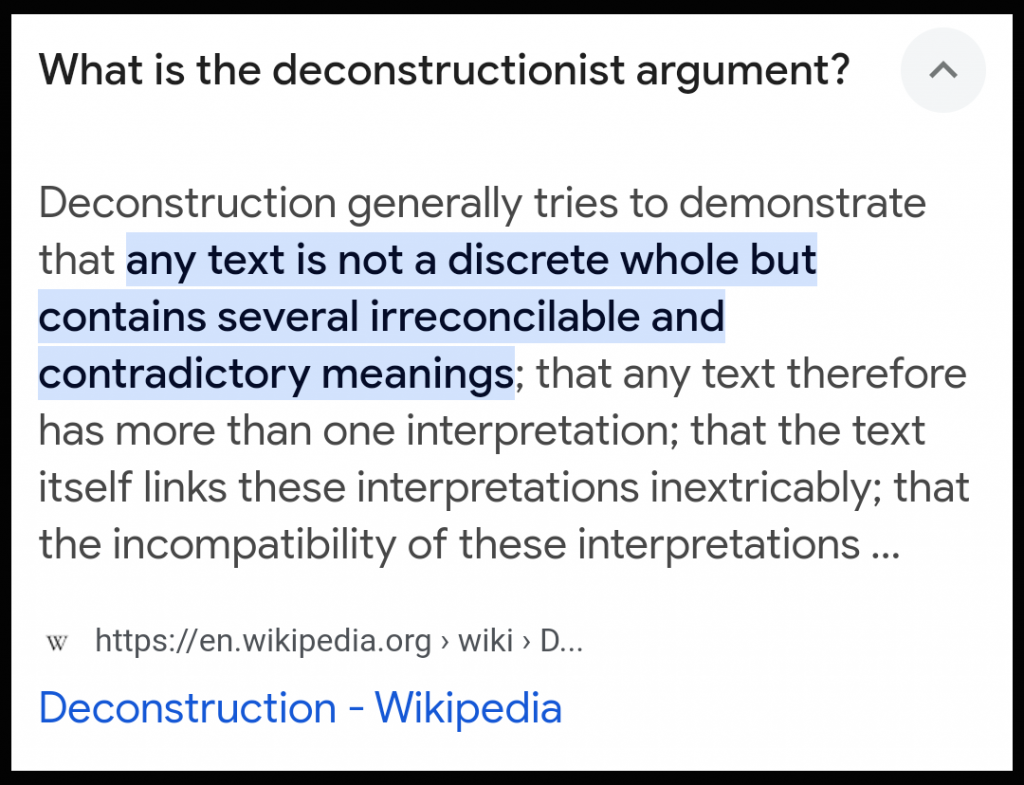
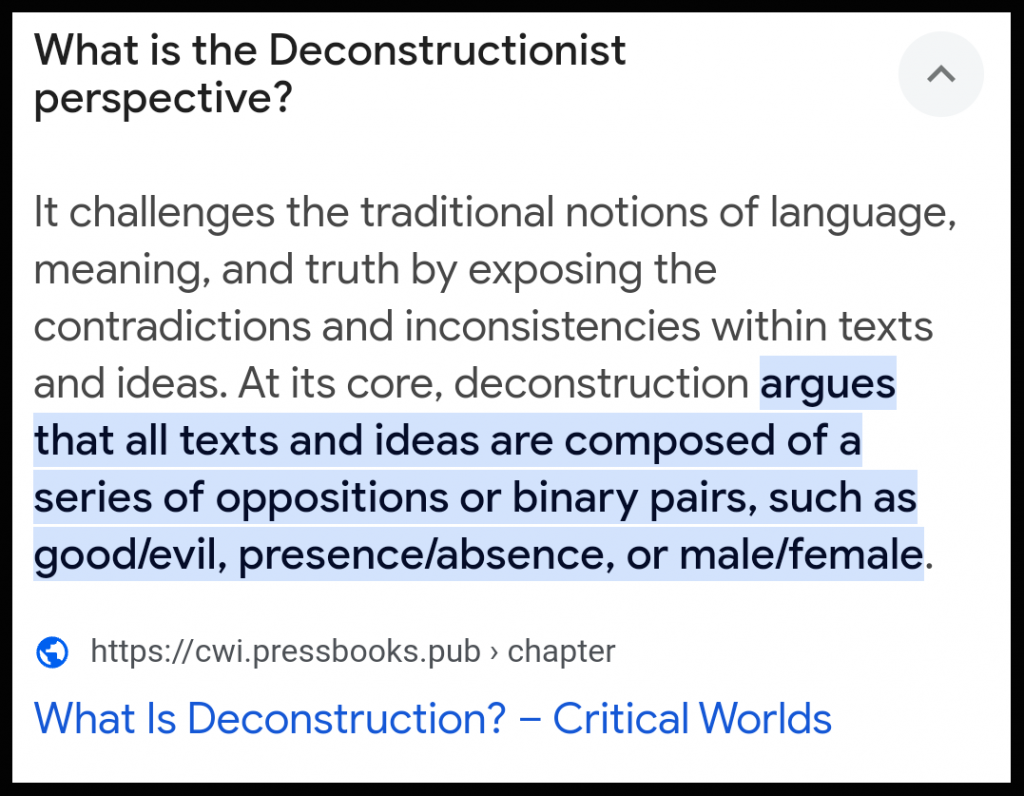
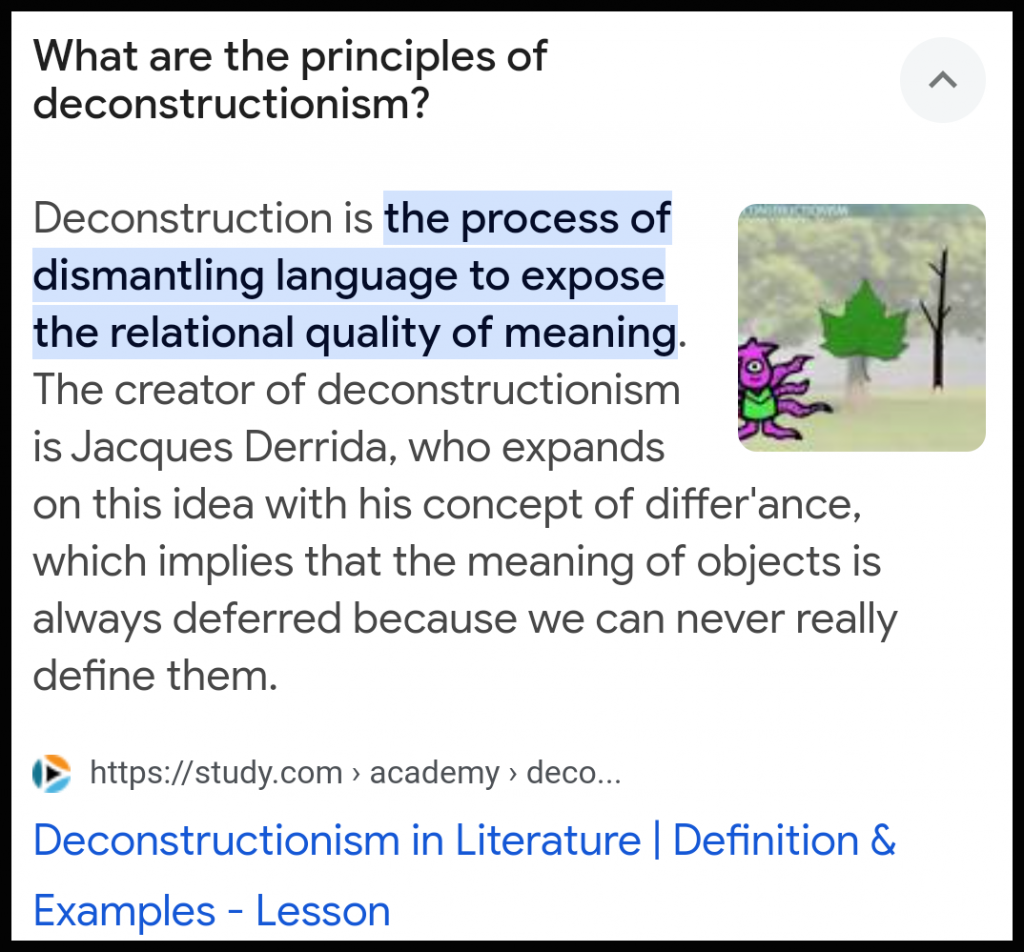



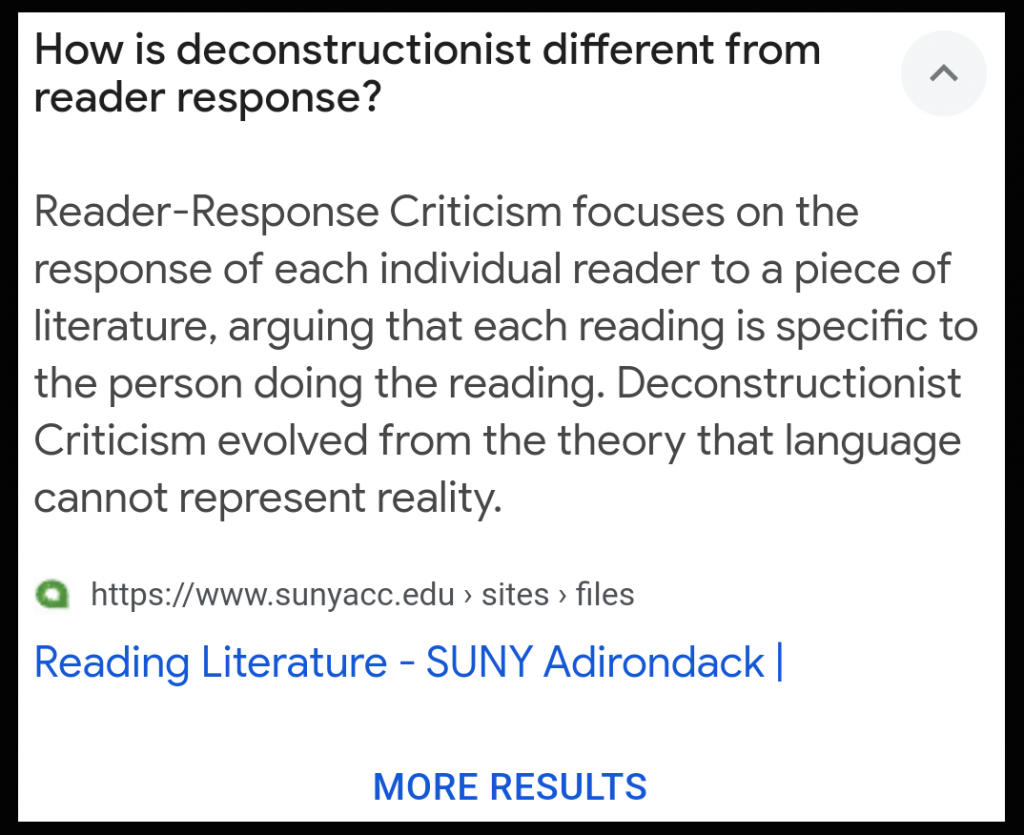
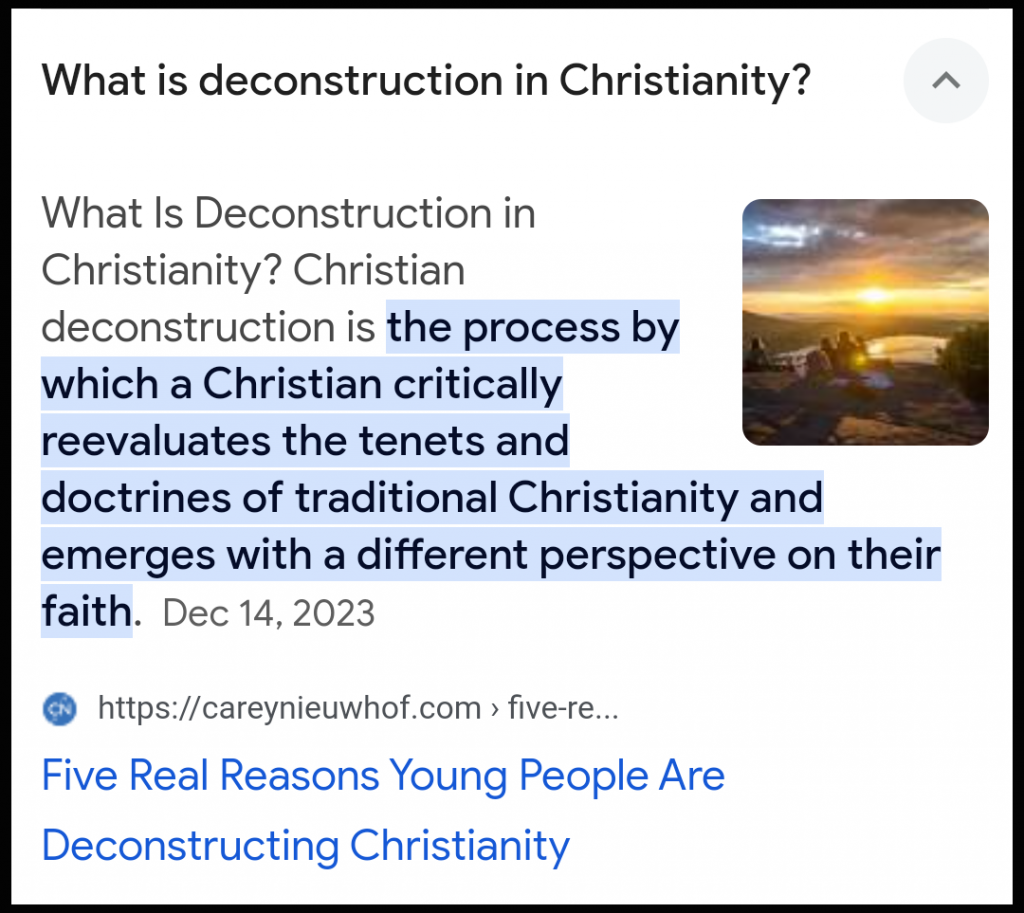

Are We Needing An Intermission Here?!
OK. Here’s the intermission:
In my attempt at note-taking from Brad Green’s talk in 2011 at Spring Church of Christ, I got about this far (see below my quotation of I John 2:19 to come) with an outline. For those interested in deeply examining Dr. Gary D. Collier, I feel this YouTube/outline is one good starting point. While there is certainly room for honest discussion and differing-but-orthodox Christian views on a few points made by Brad Green, overall, our takeaway should be that over twenty years ago Collier was coming under scrutiny with a view toward identification by church leader(s) that are operating under their rightful biblical duties as shepherds. Collier was at that time, being identified then as “heretical” and teaching “false doctrines.”
So we must ask, has this questionable trajectory changed or deepened? And if it has only deepened, how many has he “ruined” by his indoctrinations?
I think that anyone we see teaching false things (or unclear, aberrant ideas/doctrines) today (ex. David Fitch, Preston Sprinkle, Rob Bell, Brian McLaren, Brian Zhand, etc) is worthy of retroactive scrutiny. In I John 2 (as well as the book of Jude) we are given an understanding that “anti-christs” or “false brethren” or “false teachers” have a pattern of starting out within assemblies of believers but eventually they depart or “go out”–essentially this seems to be a pattern of a “rogue” person. The subject of accountability and willingness to submit to biblical, local church authority is one that should be deeply explored as it relates to such people and their followers.
“They went out from us, but they did not really belong to us. For if they had belonged to us, they would have remained with us; but their going showed that none of them belonged to us.“
– I John 2:19
Next, here is my attempt at outline notes from Brad Green’s YouTube talk regarding “The Forgotten Treasure”:
3:03 The book is “laden with false doctrines.”
– Source YouTube Video “The Forgotten Treasure by Gary D. Collier ~ Brad Green” – Spring Church of Christ
3:40 “Not an attack on the author…or any individual that knows the author…not an attack on anyone who likes the author or likes the book…it is simply a book review…”
The New Hermeneutic (his quotes from Collier reminds me of the Hegelian dialectic of progression)
Chaism — method promoted to learn/study and method to promote the “new hermeneutic”
Separates book of Matthew into “teaching blocks” and “narrative blocks” and uses “chiasms” to determine the most important/least important
Pits the “law” against the “lawgiver” — claims Jesus would read “one book of the bible at a time” and ignore any and all parallel passages “What is wrong with listening to one witness at a time?” (because you do not have the “whole” testimony)
Psalm 119:16 “The SUM of thy word is truth.”
Ridicules the “harmony” that exists in the NT; used word pejoratively, “We harmonize that which we do not understand.”
Collier says those who “harmonize” produce a “mashed potatoes gospel,” –a “new account” Collier says we should resist reading Matthew “in the light of Paul”
Collier says “God’s law” is subject to the “broader desires of God’s heart”
Moving on to Concerns with “Having Coffee with Paul” in the Sense That Collier Describes
First, here is a link to Collier’s blog piece, #14 in a series entitled “Creating Your Mindset.”
One reason I will include both screenshots and text/links is so that in five years if a page has been removed/edited, what I’ve written here can still be supported as having been public content that I am commenting about.

Collier writes: “Since most people have never heard of “Power-Reading the Bible” or of “engaging biblical authors in conversation through their texts,” it’s important to point out that this is not business as usual or a couple of fancy names for standard Bible-reading approaches and practices. So the question in front of us is, “How do we create a mindset for Power-Reading the Bible?” In the past 3 weeks, we’ve offered 3 strategies; today we offer 2 more.”
My response: In his own direct communications, Collier tells his readers that he has invented “something new.” He states that this is “not” a couple “fancy names” for “standard Bible-reading.” I came into the Christian faith via “standard Bible-reading approaches and practices.” My understanding from scripture is that the Holy Spirit leads us into all truth and illuminates scripture to us and that scripture texts reveals/teaches/leads us to God, not the author.
– Source https://www.biblicalconversation.com/blog/14-strategies-4-5
So what exactly is this “non-standard practice of Bible-reading?” Let’s find out…

Collier writes: We’ve seen instruction and devotion in earlier posts, in the disciplines for the text and the self. In order to go from concerns about the text (instruction) to concerns about God in our lives (devotion), or vice versa, we now will intentionally and imaginatively engage in conversation with and about both. It is this conversation that allows us to understand both and bridge them, as if sitting down with biblical authors over coffee.
– Source https://www.biblicalconversation.com/blog/14-strategies-4-5
Likely, by now, someone might be asking, “Well, how do I have this conversation
? Are there steps?” Hang on. We’re just not there, yet. That’ll come in a few weeks from now. Right now we’re talking about foundational principles.
My Response: I note that the concept of “conversation” is not found in any biblical text. I’m not saying one can’t apply this postmodern/deconstructionist term in some way, but I personally would be very cautious. That’s just me.
Collier is making a three-fold diagram with his newly created concept, reflecting his personal conceptualization (a kind of doctrine) of the purpose or “conversation” between “disciplines of the text and of the self” (his words) and how we should treat it (his particularly hermeneutic).

Collier writes: The notion of Biblical Conversation is new for many people, so it is a challenging idea that seems strange. But it does not need to be a mere metaphorical or theoretical step; it could actually be a verbal conversation that takes place out loud. This would involve sitting down with a cup of coffee, hot chocolate, tea (or whatever you want to drink) and visualizing the author sitting with you. It takes a little getting used to; but it is a warm skill that anyone can learn. It is part science, art, imagination, and habit, all rolled into one. It’s allowing yourself to do something a little different, maybe even outside of your current comfort zone, all for the sake of growing; and it asks you to open your imagination. Like any skill, this one comes with a learning curve; but once learned, it can have a powerful impact on how we experience the Bible.
– Source https://www.biblicalconversation.com/blog/14-strategies-4-5
If we have a mindset already against such things, we cannot possibly engage in it. The five things mentioned here can help re-orient the way we think about having coffee with Paul (or any other biblical author). It helps us get ready to become participants.
My (Very Lengthy) Response to Collier’s Statements Above: I find his use of the word “notion” and “conversation” curious. But here is my main concern…in the occult, certain “things/objects” are utilized as “portals” in a very specific manner and there are associated, intentional rituals with a view/goal of “manifesting” some result. (I’m not talking about a casual concept of “entryways“ into something, I’m speaking about things that touch on forbidden practices).
Collier is making it clear that he wants people to “practice” this “new method.” He makes it clear he wants them to literally do the following steps (and I repeat this from the above section): “But it does not need to be a mere metaphorical or theoretical step; it could actually be a verbal conversation that takes place out loud. This would involve sitting down with a cup of coffee, hot chocolate, tea (or whatever you want to drink) and visualizing the author sitting with you. It takes a little getting used to; but it is a warm skill that anyone can learn. It is part science, art, imagination, and habit, all rolled into one. It’s allowing yourself to do something a little different, maybe even outside of your current comfort zone, all for the sake of growing; and it asks you to open your imagination. Like any skill, this one comes with a learning curve; but once learned, it can have a powerful impact on how we experience the Bible.”
As an author/communicator who repeatedly uses the phrase “responsible” reading of “texts” I find it bizarre that Collier would so carelessly, intentionally and irresponsibly suggest what he is suggesting that people literally do. (If a reader is not following this, go back to my opening analogy/re-framing of this entire concept and consider the “step by step” to having a “conversation” and “coffee” with Van Gogh.) In the NT those who teach are cautioned to be very careful in their doctrines and practices and even common sense would tell us that some unstable person out there might go “too far” in this practice with Collier’s mentoring and somehow be ruined (shipwrecked) in their faith.
While I acknowledge that we should give Dr. Collier the benefit of any doubt that he is simply hammering in on the “metaphor” of creatively engaging the scriptures through imagining Moses or Paul sharing coffee with us, I find it so very peculiar. It seems evident that Collier wants to be identified as an academic and to use his education and skills to help people go “deeper,” but as a layperson that has been involved in inductive bible study (and other) methods and in various church fellowship for over forty years I am left scratching my head.
I’ve never really met some plethora of these strawman caricatures of “bible readers” that one can glean from reading multiple blogposts by Collier on the subject.
While Collier insists we should NOT think of his unique method as a (shallow) gimmick, “gimmick” is in fact what comes to mind. It doesn’t help Collier with his style of artistic visual communication through images and video, either, to allay the impression that this is a gimmick.
Oh, but my analysis gets worse and “less generous” –that this is some kind of kooky idea that distracts/wastes people’s time and makes them feel they have gnostic/esoteric understandings (special insights) or that Collier’s description of “the science” of his method and trial studies on real people don’t smell of “alchemy.” (for more on this read DO YOUR HOMEWORK SERIES: “HEGEL IS AN ALCHEMIST” AND “MARX IS A GNOSTIC” (UNDERSTANDING THEIR HERETICAL ‘CONFESSION OF FAITH’))
And of course in the sum total of it all brings us to some potential contribution to the increasing promotion of generally deconstructionist activities…and yes…demonic, New-Age occultism.
I felt Collier’s repeated “coffee” concept seemed almost like a “portal” of some sort. I would say that the end goal of scripture is not the text in itself, and I would imagine readers would agree. Collier seems to want to teach/lead people to have what he calls a “conversation” with the TEXT, which I find odd. As he rightly presumes/fields potential objections to this “practice” in the blogpiece #14 as well as his many others.
But here’s the thing I eventually realized:
He is literally suggesting an intentional (“out loud” practice of vocalization/conversing and “visualization” of biblical authors who are now DEAD. Jesus said, “Why seek the living among the DEAD?” If Collier was encouraging believers to seek through their imagination and scripture and vocalization–a form of prayer–the LIVING GOD, JESUS CHRIST or to invite the presence of the Holy Spirit to have that metaphorical “cup of coffee” with them and converse over the “text”–that would not strike me with such unease.) But, unless I am reading his words wrong, he is asking people to “open themselves up.” He is (indirectly and probably unknowingly, in a sense) asking people to essentially contact the “dead” in order to “receive” understanding of biblical “texts.”
All biblical authors have one thing in common: they are now dead human beings.
Most non-Roman Catholic Christians would not make it their method/practice to deeply connect with any dead saint through any means (ex. Rosary beads to “contact/speak aloud/gain wisdom/favor from” the Virgin Mary) nor attempt to contact a dead person for help in understanding what they meant by something they wrote when they were alive. How is this any different? Just because biblical writers are regarded as authoritative saints, apostles, document authors, prophets or whatever we might “name them,” it takes quite a lot of deconstruction of “standard Bible reading practices” to create this gimmick.
And to what end?
Oh but wait. There’s more.
There’s actually a biblical-narrative-text-document where someone who had been appointed by God as King (Saul), but didn’t fully obey Him and fell into sin, doing exactly what Collier is suggesting his followers do: to contact a dead man of God for insights/advice.

Saul and the Medium at Endor
I Samuel 28:3-24
Now Samuel was dead, and all Israel had mourned for him and buried him in his own town of Ramah. Saul had expelled the mediums and spiritists from the land. The Philistines assembled and came and set up camp at Shunem, while Saul gathered all Israel and set up camp at Gilboa. When Saul saw the Philistine army, he was afraid; terror filled his heart. 6 He inquired of the Lord, but the Lord did not answer him by dreams or Urim or prophets. 7 Saul then said to his attendants, “Find me a woman who is a medium, so I may go and inquire of her.”
“There is one in Endor,” they said.
8 So Saul disguised himself, putting on other clothes, and at night he and two men went to the woman. “Consult a spirit for me,” he said, “and bring up for me the one I name.”
9 But the woman said to him, “Surely you know what Saul has done. He has cut off the mediums and spiritists from the land. Why have you set a trap for my life to bring about my death?”
10 Saul swore to her by the Lord, “As surely as the Lord lives, you will not be punished for this.”
11 Then the woman asked, “Whom shall I bring up for you?”
“Bring up Samuel,” he said.
12 When the woman saw Samuel, she cried out at the top of her voice and said to Saul, “Why have you deceived me? You are Saul!”
13 The king said to her, “Don’t be afraid. What do you see?”
The woman said, “I see a ghostly figure[a] coming up out of the earth.”
14 “What does he look like?” he asked.
“An old man wearing a robe is coming up,” she said.
Then Saul knew it was Samuel, and he bowed down and prostrated himself with his face to the ground.
15 Samuel said to Saul, “Why have you disturbed me by bringing me up?”
“I am in great distress,” Saul said. “The Philistines are fighting against me, and God has departed from me. He no longer answers me, either by prophets or by dreams. So I have called on you to tell me what to do.”
16 Samuel said, “Why do you consult me, now that the Lord has departed from you and become your enemy? 17 The Lord has done what he predicted through me. The Lord has torn the kingdom out of your hands and given it to one of your neighbors—to David. 18 Because you did not obey the Lord or carry out his fierce wrath against the Amalekites, the Lord has done this to you today. 19 The Lord will deliver both Israel and you into the hands of the Philistines, and tomorrow you and your sons will be with me. The Lord will also give the army of Israel into the hands of the Philistines.”
20 Immediately Saul fell full length on the ground, filled with fear because of Samuel’s words. His strength was gone, for he had eaten nothing all that day and all that night.
21 When the woman came to Saul and saw that he was greatly shaken, she said, “Look, your servant has obeyed you. I took my life in my hands and did what you told me to do. 22 Now please listen to your servant and let me give you some food so you may eat and have the strength to go on your way.”
23 He refused and said, “I will not eat.”
But his men joined the woman in urging him, and he listened to them. He got up from the ground and sat on the couch.
24 The woman had a fattened calf at the house, which she butchered at once. She took some flour, kneaded it and baked bread without yeast. 25 Then she set it before Saul and his men, and they ate. That same night they got up and left.
I think readers should be getting the gist of the problematic teachings of Gary D. Collier regarding “Coffee With Paul” (and some other things) but here’s the remaining screenshots of his blog series #14 for readers to contemplate and “do their homework.”


So how should I end this piece?
I’m thinking that it’s Kool-Aid in the coffee mug, not COFFEE, and certainly, if one begins to engage in conversation with some imaginary “Paul” appearing in their “mind’s eye,” beware!
Thank You For Reading
Please Feel Free To Express Your Thoughts Below




